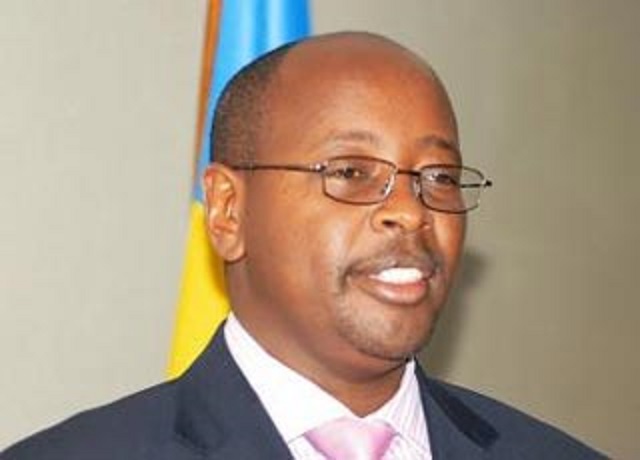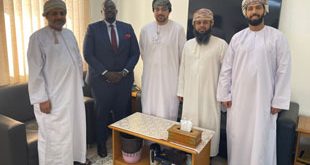
By Magnus Mazimpaka
Rwanda increased its spending by 24%, the raise mainly acting as a stimulus package to protect the economy against the current global financial crisis. Expenditure increased to Frw838 billion this financial year 2009/10 from Frw674 billion last year. There was a slight increase of Frw26 billion from Frw812.
“This increase is going to help us inject more money in the economy and act as a stimulus in safeguard to this global financial crisis,” the Finance Minister James Musoni told The Independent shortly after his presentation of the budget to the parliament on June 11.
Musoni read the budget the same day his East African counterparts did.
Rwanda was required to align its budget calendar to that of the Community with effect from July 1, 2009 as agreed in the EAC Accession Treaty of June 18, 2007.
Rwanda’s economic performance and growth was impressive in 2008, but Musoni said there were challenges experienced including the global financial and economic crisis, fluctuations in oil prices, and the rise of food prices.
Although Rwanda increased its spending, it still faces a Frw 68bn deficit and is already borrowing, Musoni said.
Donor support to the budget will be cut from about 50% to 41% and will be more in form of grants other than credits which are expected to increase by 11% to Frw342.2 billion from Frw307.6 billion in 2008.
There will be withdrawing of about US$45million (aprox.Frw25b) from the national reserves, more borrowing and a boost from the domestic revenues of Frw427.2 billion 51% of the entire budget.
Revenues are expected from sell of 10% of government shares in MTN, BRALIRWA (30%) and other utilities including tea factories.
For the first time Rwanda has funded its budget with internal revenues exceeding external revenues.
Tax collection was significant, accounting for 86% of internal resources in the 2009/10 budget.
Growth in tax revenues was impressive and is projected to increase by 34%.
However, the Minister said, Rwanda might borrow from the International Monetary Fund (IMF) if the Balance of Payment deteriorates.
Again, the share of capital expenditure was increased from last year’s allocation by 33% to Frw348.1 billion.
This means the year 2009/10 comprises 57% or Frw474.5 billion, which is 2% less than the allocation of the previous year.
Loans and payment of arrears comprise about 10% of the 2009/10 budget.
There is money already confirmed from the Arab Bank (ABADEA), OPEC, India and China.
Spending will be very specific and allocations were significantly changed compared to late year.
The cake will be shared in four pieces; infrastructure, production activities, development of human capital and promotion of good governance and sovereignty taking the lion’s share.
Emphasis in spending shows more financing in development projects to create more jobs and to generate growth.
Infrastructure will take Frw190.5 billion, but it will be split into four sectors.
Transport, especially road construction which intends to create about 3000 jobs and telecommunication were allocated Frw103.6 billion, water will take Frw19.1 billion, fuel and energy has Frw62.9 billion while resettlements works and office structures will take only Frw4.8 billion.
The production pillar has Frw87.9 billion with environmental protection getting Frw13 billion, agriculture Frw53.9 billion, and industry and commerce Frw21.1 billion.
The human development and social sectors pillar was allocated Frw270.4 billion.
Out of that, health has Frw85.6 billion where about 520,000 poor people will be assisted to pay for their annual health insurance (Mituelle de sant)
Education has a huge share of Frw139 billion. There will be construction of 1,703 classrooms in primary and lower level secondary under the nine year education program.
The government intends also to buy about 200,000 computers out of which 100,000 will be laptops for children under the one laptop per child programme.
There is also Frw10 billion allocated for developing human skills as a reaction to the skills audit report that indentified a skills gap of about 48%.
Governance and sovereignty with the largest share of Frw289.2 billion will be spent it on general public service, defense and public order and safety.
Surprisingly, the military will spend only Frw43.6 billion.
There is stability at the moment and focus will be put in professionalization of the military workforce to increase their capacity and discipline, the budget document said.
Some of the controversial patterns in the budget are tax increases and exemptions.
Excise duty on airtime has been increased to 5% from 3%, creating pressure amongst players in the telecom sector and their customers.
Musoni told The Independent that a 2% increase is an insignificant figure and people should not worry about it.
But MTN Rwanda CEO, Khaled Mikkawi complained in a local daily, The New Times, that the decision to increase tax in the middle of the year would cripple the company’s revenues.
He was quoted as saying; ‘All I can say is that we were all surprised, this is something we did not expect to happen at this time of the year. We are already in the middle of the year and we did not have this increment planned for in our annual plans.’
But the government says since there is no tax on handsets, as a move to allow everyone access affordable communication, it makes sense to make such a slight increase on airtime to be able to raise resources from people’s expenditures.
Currently, the costs of telecommunication services in Rwanda are the highest in the EAC.
Minister Musoni told Parliament that the tax on airtime will be gradually increased further from 5% to ten in future.
Another interesting aspect in the budget is the scraping of taxes on raw materials.
Raw materials, both as exports and imports, and capital equipment will not be taxed as a move to boost industrial production which will generate more revenues for the economy and create jobs.
Financial institutions were considered too.
In terms of profitability, banks in Rwanda are doing well, but they have no single deposits to facilitate long term lending.
“We have negotiated with some financial institutions like the ADB, European Development Bank and IFC to extend lines of long term credit so that they can also lend on long term here,” Minister Musoni said.
There is also a plan to mobilise domestic savings after studies suggested that there is a lot of money in circulation that is not captured in the banks.
 The Independent Uganda: You get the Truth we Pay the Price
The Independent Uganda: You get the Truth we Pay the Price


